If you’re looking to establish a company or expand your business in the UAE, you might want to consider UAE Free Economic Zones. These zones are specially designated areas that offer various incentives and benefits to attract local and international businesses. They are known for their business-friendly environment, tax exemptions, 100% foreign ownership, simplified company formation procedures, and world-class infrastructure and logistics.
UAE Free Economic Zones are strategically located across the country, making them ideal hubs for international trade. They are also known for their specialization in specific industries, such as technology, logistics, finance, and manufacturing. In this article, we will explore the advantages of setting up a company in UAE Free Economic Zones, the types of zones available, the company formation process, and the business and investment opportunities they offer.
Key Takeaways:
- UAE Free Economic Zones offer various benefits and incentives to attract local and international businesses
- Advantages of setting up a company in UAE Free Economic Zones include tax exemptions, 100% foreign ownership, simplified company formation procedures, and world-class infrastructure and logistics
- UAE Free Economic Zones are strategically located across the country, making them ideal hubs for international trade
- UAE Free Economic Zones specialize in specific industries, such as technology, logistics, finance, and manufacturing
- Setting up a company in UAE Free Economic Zones requires adherence to specific regulations and policies
- Investment prospects in UAE Free Economic Zones are vast and offer high growth potential
- UAE Free Economic Zones are poised for continued growth and opportunities in the future
Key Advantages of UAE Free Economic Zones
Setting up a company in UAE Free Economic Zones offers various advantages and benefits that can help boost business growth and profitability. Some of the key advantages are:
| Tax Exemptions | Companies operating in UAE Free Economic Zones are exempt from corporate and personal taxes for up to 50 years. |
|---|---|
| 100% Foreign Ownership | Foreign investors can own their companies outright without the need for a local partner or sponsor. |
| Simplified Company Formation Procedures | The process of setting up a company in UAE Free Economic Zones is streamlined and efficient, with minimal paperwork and red tape. |
| Access to World-Class Infrastructure and Logistics | UAE Free Economic Zones offer state-of-the-art facilities, including advanced transport and telecommunications networks, ports, and airports. |
These advantages, coupled with a favorable business environment, attract both local and international businesses to set up shop in the UAE Free Economic Zones. According to a report by the Ministry of Economy, the total number of companies operating in these zones reached 45,000 in 2020, with a total investment of AED 900 billion.
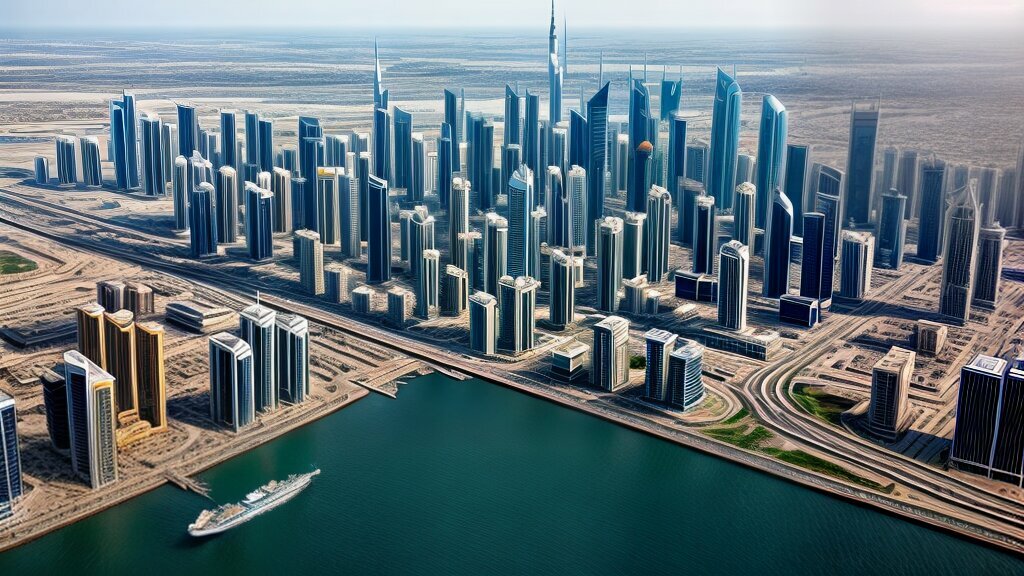
Moreover, the various types of UAE Free Economic Zones, such as Free Trade Zones, Industrial Zones, and Technology Parks, cater to a wide range of industries, providing ample opportunities for businesses to thrive and expand.
Key Advantages of UAE Free Economic Zones: Conclusion
UAE Free Economic Zones offer various advantages, including tax exemptions, 100% foreign ownership, simplified company formation procedures, and access to world-class infrastructure and logistics. These benefits along with the diverse range of industries catered to by the different types of zones make the UAE a prime destination for businesses looking to expand their operations.
Types of Free Economic Zones in UAE
The UAE has several types of Free Economic Zones catering to various industries and requirements. These zones are designed to provide businesses with an environment that offers various advantages and incentives to operate smoothly and efficiently.
Free Trade Zones
Free Trade Zones (FTZs) are the most common type of Free Economic Zones in the UAE. They cater to import and export activities and offer several incentives to businesses, including 100% foreign ownership, tax exemptions, and simplified company formation procedures. Businesses in FTZs have access to world-class infrastructure and logistics, making it easier to conduct international trade.
Industrial Zones
Industrial Zones specialize in the manufacturing and production of specific goods. These zones offer infrastructure and facilities tailored to the requirements of manufacturing industries, such as warehouses, factories, and storage facilities. Businesses in Industrial Zones benefit from tax exemptions, 100% foreign ownership, and simplified company formation procedures.
Technology Parks
Technology Parks cater to businesses in the IT and technology sectors. These zones offer world-class facilities such as data centres, research and development centres, and technology incubators. Businesses in Technology Parks benefit from the latest technology and infrastructure, access to skilled human resources, and simplified company formation procedures.
Specialised Zones
Specialised Zones cater to specific industries such as healthcare, education, media and entertainment, and more. These zones offer facilities and infrastructure tailored to the requirements of each industry, such as hospitals and clinics in healthcare zones and studios and production houses in media and entertainment zones. Businesses in Specialised Zones benefit from access to a targeted market, tax exemptions, 100% foreign ownership, and simplified company formation procedures.
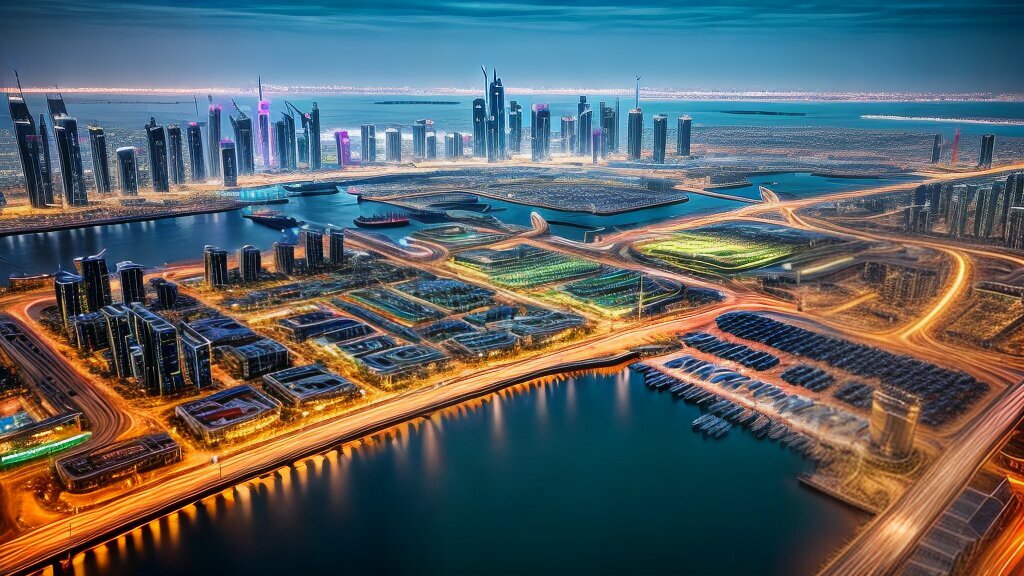
The UAE Free Economic Zones offer a diverse range of options for businesses looking to set up operations in the region. Each type of zone caters to different requirements and offers incentives to businesses to help them grow and succeed. The strategic locations of these zones provide easy access to global markets, making them a hub for international trade and business opportunities.
Company Formation in UAE Free Economic Zones
If you are interested in setting up a company in a UAE Free Economic Zone, the process is relatively straightforward. Here are the necessary steps:
| Step | Description |
|---|---|
| 1 | Choose a Free Economic Zone based on your business needs and industry requirements. The UAE has over 50 Free Economic Zones, each with its own unique focus and benefits. |
| 2 | Submit an application with the required documents, which usually include a passport copy, business plan, and legal documents such as a Memorandum of Association and Articles of Association. |
| 3 | Once your application is approved, you will receive a trade license and other necessary permits. |
| 4 | Obtain a residency visa for yourself and any employees you plan to hire. Most Free Economic Zones offer visa services for company owners and their employees. |
There are different options available for company structures, depending on the nature of your business. For example, you can set up a Limited Liability Company (LLC) or a Free Zone Establishment (FZE), which is a single shareholder company.
The cost of setting up a company in a UAE Free Economic Zone will depend on the type of license and the size of the company. However, compared to many other countries, the cost is relatively low, and the process is much faster and simpler.
If you need assistance with the company formation process, many Free Economic Zones have business setup consultants who can guide you through the process and help you get set up quickly and efficiently.
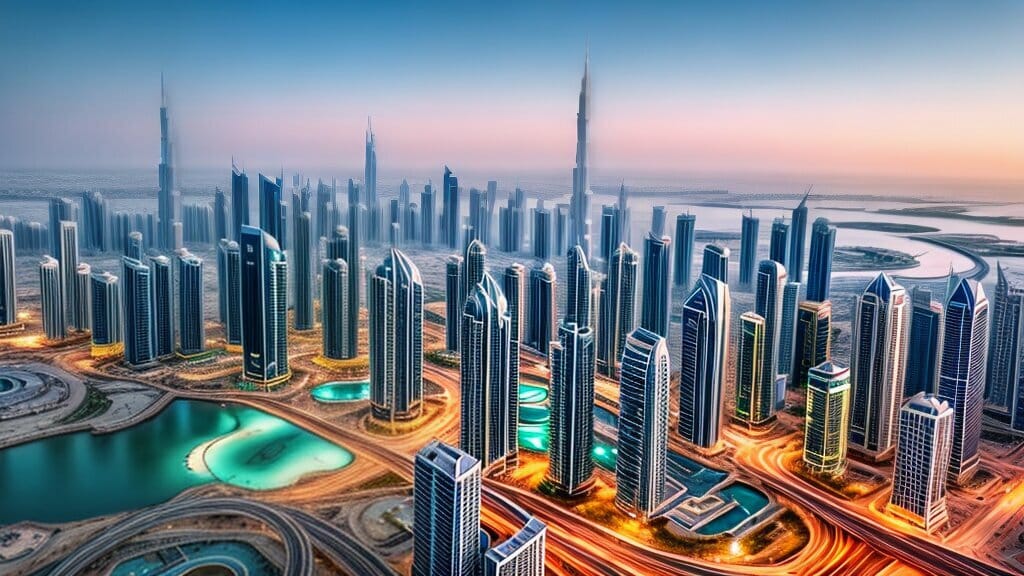
Business Opportunities in UAE Free Economic Zones
UAE Free Economic Zones offer a vast array of business opportunities, catering to various industries and sectors. These zones provide an ideal environment for businesses to thrive with easy access to world-class infrastructure, logistics and excellent connectivity to global markets.
One of the thriving sectors in UAE Free Economic Zones is logistics. With Dubai being the busiest transportation hub in the region, companies that specialize in logistics have a unique opportunity to access and serve the whole Middle East and North Africa region. Jebel Ali Free Zone, one of the largest free zones in the UAE, is a prime example of a logistics hub that hosts many leading logistics companies.
Another sector that has gained significant momentum in UAE Free Economic Zones is technology. Dubai Internet City, Dubai Silicon Oasis and Abu Dhabi’s Technology Park are just a few examples of specialized zones designed to cater to technology companies. These zones offer access to cutting-edge technological infrastructure, a pool of tech talents, and a favorable regulatory environment. Many global tech giants, such as Microsoft and IBM, have chosen to set up their regional headquarters in these zones.
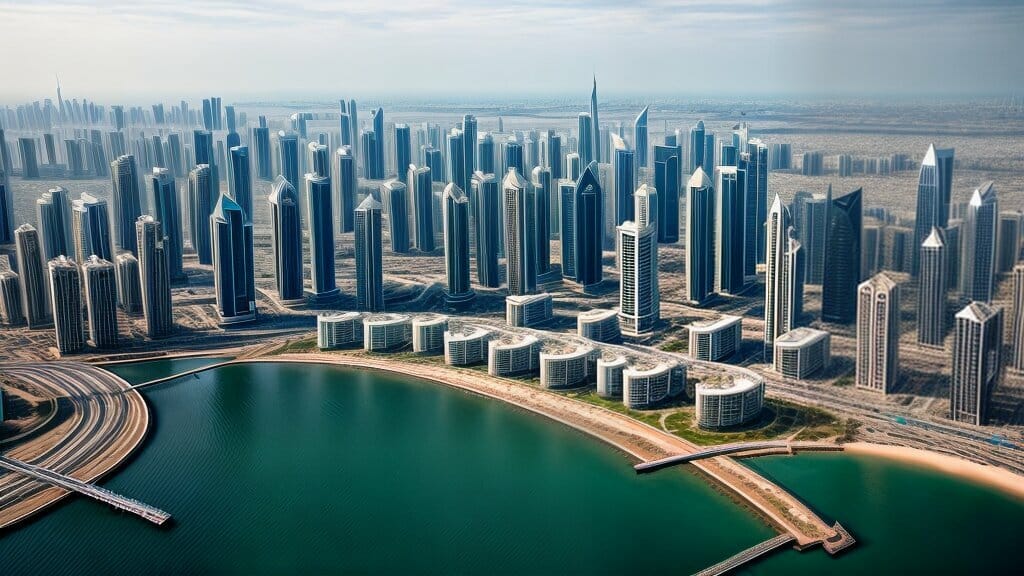
Finance and investment-related activities are also thriving in UAE Free Economic Zones. Dubai International Financial Centre (DIFC), one of the leading financial centers in the region, offers a sophisticated regulatory framework, a large talent pool and easy access to a wide range of international markets.
Finally, manufacturing companies also have a unique opportunity to set up their operations in UAE Free Economic Zones. Zones such as Ras Al Khaimah Economic Zone (RAKEZ) and Hamriyah Free Zone offer access to top-notch industrial infrastructure and logistics, a wide range of business support services, and favorable regulatory conditions.
With such diverse business opportunities available in UAE Free Economic Zones, it’s no wonder that numerous local and international companies have chosen to set up their operations here. The favorable business environment, competitive advantages, and excellent connectivity to global markets make UAE Free Economic Zones an ideal choice for ambitious entrepreneurs and investors.
Investment Opportunities in UAE Free Economic Zones
The UAE’s Free Economic Zones offer a wealth of investment opportunities to both local and international investors. With a business-friendly environment, world-class infrastructure, and a strategic location, the UAE is an ideal hub for businesses looking to expand their global footprint.
Investors can benefit from the UAE’s tax exemptions, simplified company formation procedures, access to international markets, and 100% foreign ownership. Additionally, the country’s rapidly growing population and expanding economy provide ample opportunities for businesses to thrive.
The UAE government has taken several initiatives to attract investment into the country, including offering incentives such as subsidized land, reduced electricity rates, and access to financing. The government has also established several funds to support the growth of various sectors, including technology and renewable energy.
The UAE’s Free Economic Zones cater to a variety of industries, including logistics, technology, manufacturing, and finance. In addition, some zones have a specific focus, such as biotechnology or media. This diversification of industries provides investors with a range of options to choose from.
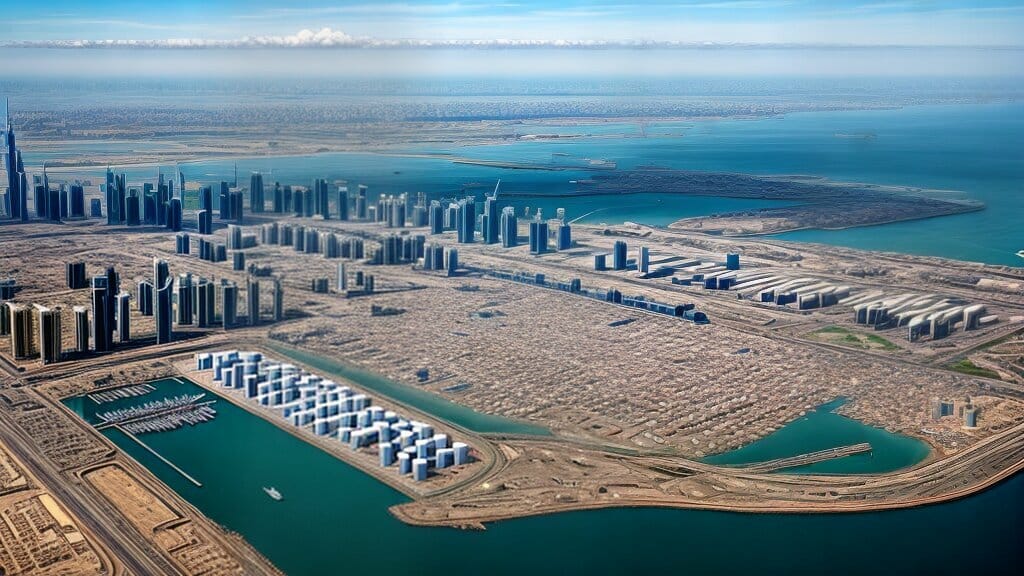
The UAE’s Free Economic Zones have already attracted numerous international companies, including Google, Microsoft, and Siemens, who have set up their regional headquarters in the country. These companies have taken advantage of the UAE’s strategic location and access to international markets to grow their business.
The UAE’s economic growth and future outlook are highly promising, with continued investments being made in infrastructure, healthcare, and education. This growth is expected to result in an even more favorable business environment, offering further opportunities for investors.
Regulations and Policies in UAE Economic Zones
Businesses operating in UAE Free Economic Zones are subject to a set of regulations and policies aimed at promoting a fair and competitive business environment while ensuring compliance with local laws and regulations.
The main regulatory body responsible for overseeing the operations of businesses in UAE Free Economic Zones is the respective free zone authority, which also sets the specific policies applicable to businesses in each zone.
Overall, businesses in these zones enjoy a simplified regulatory framework compared to businesses operating in the mainland UAE. They are exempt from customs duties, value-added tax (VAT), and corporate taxes. Additionally, businesses in Free Economic Zones are permitted 100% foreign ownership and do not require a local sponsor or partner.
However, businesses are still required to meet certain compliance requirements, such as obtaining necessary licenses and permits, submitting regular financial statements, and complying with labor laws and regulations.
In addition, certain industries require specialized licenses and permits to operate in Free Economic Zones, such as companies dealing with hazardous materials or those operating in the health sector. These requirements are typically set by the free zone authority and may differ among zones.
Overall, the regulatory framework in UAE Free Economic Zones is designed to provide a favorable business environment while ensuring compliance with local laws and regulations. This enables businesses to focus on growth and innovation, while benefiting from the numerous incentives and benefits provided by these zones.
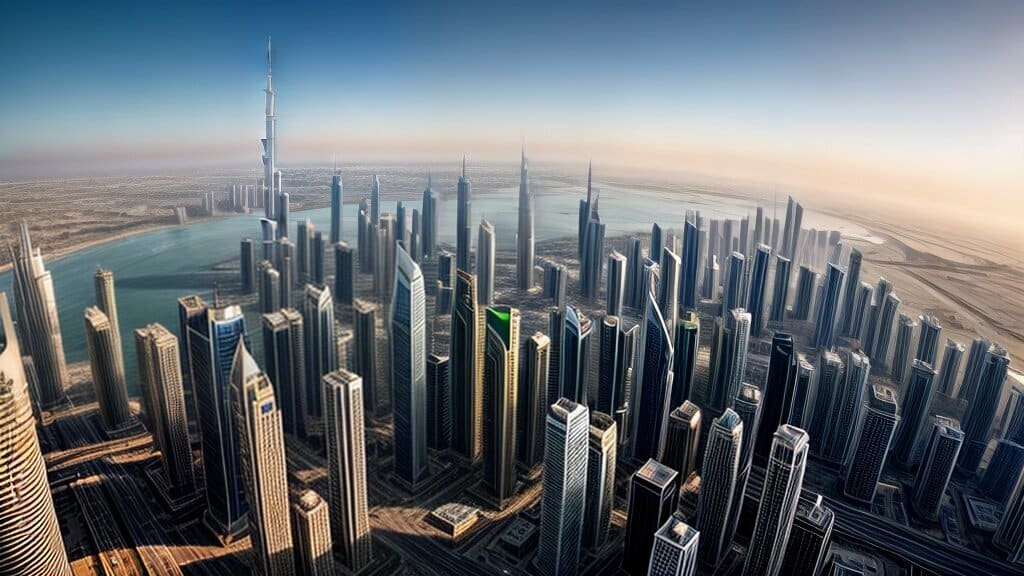
Strategic Locations of UAE Free Economic Zones
The UAE is strategically located between Europe, Asia, and Africa, making it an ideal hub for international trade. The UAE’s Free Economic Zones are located in key locations across the country, providing easy access to major ports, airports, and transportation networks.
Dubai, the commercial hub of the UAE, is home to several free zones, including Dubai Airport Free Zone, Dubai Internet City, and Dubai Media City. These zones are situated near Dubai International Airport, the world’s busiest airport for international passenger traffic. The proximity to the airport and other transportation networks make these zones ideal locations for businesses that rely on easy access to global markets.
Abu Dhabi, the capital of the UAE, is also home to several free zones, including the Abu Dhabi Global Market and Khalifa Industrial Zone Abu Dhabi. These zones are located near Khalifa Port, which is one of the largest container ports in the Middle East and provides easy access to major shipping routes.
The Sharjah Airport International Free Zone, located near Sharjah International Airport, is another key economic zone in the UAE. It offers easy access to the Middle East, Africa, and Asia, making it an ideal location for companies that require efficient logistics and distribution.
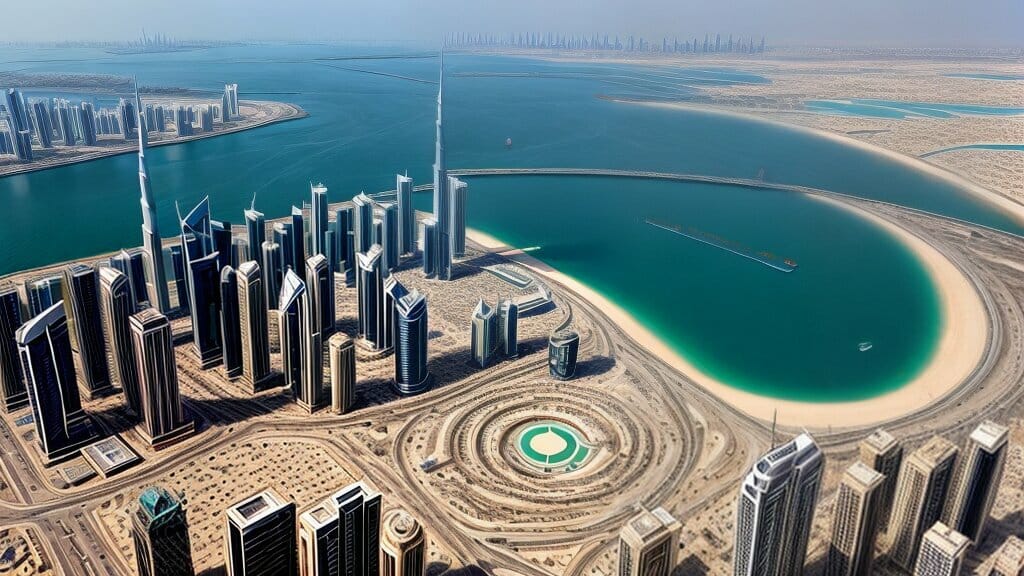
The Ras Al Khaimah Economic Zone, located in the northern part of the UAE, is another strategic location for businesses that require access to both the Gulf and Indian Ocean markets. The zone is located near the Ras Al Khaimah International Airport and the major seaport of Jebel Ali.
The Fujairah Free Zone, located on the east coast of the UAE, provides easy access to the Persian Gulf, the Indian Ocean, and the Red Sea. The zone is located near the Port of Fujairah, which is the second-largest oil bunkering port in the world and plays a significant role in the global oil and gas industry.
Conclusion
The strategic locations of UAE Free Economic Zones make them key locations for businesses that require easy access to global markets. These zones provide businesses with world-class infrastructure and logistics, making them ideal locations for companies that require efficient logistics and distribution.
Case Studies and Success Stories
Several companies have found success in UAE Free Economic Zones, taking advantage of the business-friendly environment, strategic locations, and incentives offered. The following are some case studies and success stories:
| Company | Industry | Free Zone | Success Story |
|---|---|---|---|
| DP World | Logistics | Jebel Ali Free Zone | DP World is one of the world’s largest logistics companies, operating in Jebel Ali Free Zone since 1985. The company has expanded its operations to over 45 countries, and Jebel Ali remains its flagship hub, contributing significantly to the UAE’s economy. |
| IBM | Technology | Dubai Silicon Oasis | IBM established its Middle East and Africa headquarters in Dubai Silicon Oasis, taking advantage of the free zone’s focus on technology and innovation. The company has since expanded its operations, serving clients across the region and driving digital transformation. |
| Standard Chartered | Finance | Dubai International Financial Centre | Standard Chartered is a major international bank that chose to set up in Dubai International Financial Centre due to the zone’s reputation as a leading financial hub. The bank has been able to provide banking services to a diverse range of clients from its base in the UAE. |
These success stories demonstrate the vast array of opportunities available in UAE Free Economic Zones. Whether it’s logistics, technology, finance, or other sectors, companies of all sizes and industries can benefit from the favorable business environment and strategic locations provided by these zones.

Future Outlook and Growth Potential
UAE free economic zones have been instrumental in driving the country’s economic growth, and their future outlook is bright. With continued government support and investment, these zones are expected to expand into new industries and attract more international businesses.
The COVID-19 pandemic has presented new challenges for businesses worldwide, but UAE free economic zones have proven to be resilient and adaptable. In fact, many of these zones have launched new initiatives to support businesses during these uncertain times.
| Projected Growth Areas | Expected Benefits |
|---|---|
| Technology and Innovation | Increased investment in research and development, job creation, and economic diversification. |
| Logistics and Transportation | Improved connectivity to global markets, increased trade volumes, and job creation. |
| Renewable Energy | Reduced carbon footprint, increased energy efficiency, and job creation. |
New projects and expansions are also underway, such as the Dubai South Free Zone, which is set to become the largest free economic zone in the UAE, with a focus on logistics and transportation. The Abu Dhabi Global Market also continues to expand its financial services offerings, attracting more businesses to its free zone.
The UAE’s ambitious plans to establish Mars Scientific City, a simulation of life on Mars, showcase the country’s commitment to innovation and attracting cutting-edge industries to its free zones.
Overall, UAE free economic zones are well-positioned for continued growth and present a wealth of opportunities for investors and businesses looking to expand in the region.

Conclusion
UAE Free Economic Zones have become a vital component of the UAE’s business landscape, offering a range of benefits and incentives to local and international businesses. The tax exemptions, 100% foreign ownership, simplified company formation procedures, and access to world-class infrastructure and logistics make these zones ideal for companies seeking to enhance business growth and profitability.
With several types of Free Economic Zones catering to specific industries, UAE Free Economic Zones present a vast array of business and investment opportunities. The strategic locations of these zones provide efficient access to global markets, making them ideal hubs for international trade.
The UAE government’s initiatives and incentives aimed at attracting investment into the UAE indicate continued growth and opportunities in the future. UAE Free Economic Zones have proven to be successful for many companies, as seen in the various case studies presented. With the future outlook and growth potential, now is the time for potential investors and entrepreneurs to explore the opportunities available in UAE Free Economic Zones and take advantage of the incentives and favorable business environment they offer.
FAQ
Q: What are UAE Free Economic Zones?
A: UAE Free Economic Zones are designated areas within the United Arab Emirates that offer a range of benefits and incentives to attract local and international businesses. These zones provide a favorable business environment, with tax exemptions, simplified company formation procedures, and access to world-class infrastructure and logistics.
Q: What are the advantages of UAE Free Economic Zones?
A: Setting up a company in UAE Free Economic Zones comes with several advantages. These include tax exemptions, 100% foreign ownership, simplified company formation procedures, and access to world-class infrastructure and logistics. These advantages can enhance business growth and profitability.
Q: What types of Free Economic Zones exist in UAE?
A: UAE has different types of Free Economic Zones, including Free Trade Zones, Industrial Zones, Technology Parks, and more. Each type of zone caters to specific industries and offers unique features. Some prominent free zones in the UAE include Dubai Multi Commodities Centre (DMCC), Jebel Ali Free Zone (JAFZA), and Abu Dhabi Global Market (ADGM).
Q: How to set up a company in UAE Free Economic Zones?
A: Setting up a company in UAE Free Economic Zones involves specific steps and requirements. These may include selecting the appropriate company structure, obtaining the necessary licenses, and fulfilling documentation requirements. The cost and timeline involved in the company formation process may vary depending on the specific zone and business activity.
Q: What business opportunities are available in UAE Free Economic Zones?
A: UAE Free Economic Zones offer a wide range of business opportunities across various sectors and industries. These zones are particularly attractive for logistics, technology, finance, and manufacturing companies. Many success stories exist of companies that have thrived by operating in these zones.
Q: Are there investment opportunities in UAE Free Economic Zones?
A: UAE Free Economic Zones present lucrative investment prospects for both local and international investors. These zones offer competitive advantages and government initiatives to attract investment. Certain sectors within the zones show high growth potential and provide opportunities for investors.
Q: What are the regulations and policies in UAE Economic Zones?
A: Businesses operating in UAE Free Economic Zones must adhere to the regulations, policies, and legal framework set by the UAE government. General rules and compliance requirements apply, and certain industries may have specific regulations or licenses that need to be considered.
Q: Where are the strategic locations of UAE Free Economic Zones?
A: UAE Free Economic Zones are strategically located, providing connectivity to global markets. They are often in proximity to major ports, airports, and transportation networks, offering efficient access to the Middle East, Africa, Asia, and Europe. These locations make the zones ideal hubs for international trade.
Q: Are there any case studies or success stories of companies in UAE Free Economic Zones?
A: Yes, there are numerous case studies and success stories of companies that have thrived in UAE Free Economic Zones. These examples showcase their achievements, growth trajectory, and the specific benefits they have experienced by operating in these zones. They serve as inspiration for potential investors and entrepreneurs.
Q: What is the future outlook and growth potential of UAE Free Economic Zones?
A: UAE Free Economic Zones have a positive future outlook and significant growth potential. The UAE government has planned upcoming projects, expansions, and initiatives to further enhance these zones. Industry trends and forecasts also indicate continued growth and opportunities in the future.